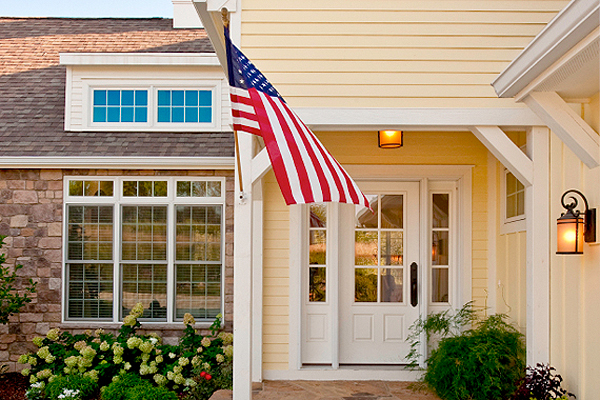
Fourth of July: Take a Step Toward Energy ‘Independence’
Posted by Jennie Temple on Jun 30, 2015 in Blog | 0 comments
By: John Riha
The Fourth of July — Independence Day — is a great time to reflect on how lucky we are to live in the United States of America, and what we can do to make our nation better, stronger, and more prosperous. As President Kennedy famously said many years ago, “Ask what you can do for your country.”
We’d all like to do our part. But our individual efforts sure seem small compared with the goings-on of world politics and global economies.
How can we — average American home owners — really achieve big goals, such as influencing national energy policy and building a strong economy? After all, we’ve got our own daily stuff to deal with: work, home repairs, getting the kids to softball practice, and the dog to the vet.
One good way is to reduce energy consumption in our own homes. This simple act can have a major impact. Not just in terms of helping hold the line on the family budget, but in slowing the ever-spiraling costs of energy. Lessening demand — even incrementally — eases the price of energy, which can free up capital that creates jobs and helps get our economy kicking.
Here are examples of small contributions you can make that add up:
- Ask cable or satellite providers for an energy-efficient set-top box, (the device that receives and dispatches TV signals to your DVR). Set-top boxes, which run 24 hours a day, have become a leading energy drain in the home. Newer Energy Star-rated models are at least 30% more efficient. If all set-top boxes sold in the U.S. were Energy Star-rated, energy savings would total $2 billion each year, and greenhouse gases would be reduced by an amount equivalent to 3 million cars and trucks.
- Replacing an old, kaput dishwasher with an Energy Star-qualified model cuts the annual energy cost of the machine by 50% — to $60 from $120. If every clothes washer purchased in the U.S. this year were an efficient Energy Star model, the national energy savings would total $350 million, not to mention conserving 32 billion gallons of water.
- Buying a high-efficiency gas or electric water heater, when yours reaches the end of its useful life, saves 3% to 4% on the average home’s hot water bill. Energy standards enacted by the U.S. Dept. of Energy in 2010 were designed to cut energy usage of new water heaters by 3% to 4%. Over a 30-year period, U.S. consumers should save $8.7 billion and reduce CO2 emissions by 170 million tons — that’s equal to the yearly emissions of 30 million cars.
- Replacing a 60-watt incandescent light bulb with a 13-watt compact fluorescent equivalent saves $30 over the life of the bulb. Alternative: LED bulbs, although costly ($30 for 7-watts), last 3 to 4 times longer than CFLs, burn cooler, and — unlike CFLs — contain no mercury. If every home in America replaced just one incandescent bulb with an Energy Star-qualified CFL, the savings would be enough to light more than 3 million homes. The savings would also reduce greenhouse gas emissions caused by fossil-fuel energy production equivalent to 800,000 autos.
More easy ways to be patriotic (and save):
- Create a breeze with a ceiling fan instead of using the AC. For every degree you raise the air conditioning thermostat above 78 degrees, you can save 3% to 8% on cooling costs.
- Install a programmable thermostat and save as much as $180 per year.
- Plump up attic insulation from R-11 to R-49 and save up to $600 per year.
- Turn down the thermostat on your refrigerator and save $22 per year.
- Outsmart sneaky energy vampires by turning off (or putting “to sleep”) computers, printers, and other electronics when not in use: Shave another $100 from your annual energy bill.
Let’s put the independence in Independence Day.
In what ways do you save energy in your household?
Read more: http://www.houselogic.com/blog/emergency-preparedness/fourth-july-take-step-toward-energy-independence/#ixzz3eVRAYBIY
I am a SAHM and work from home too. I love to sell homes!




